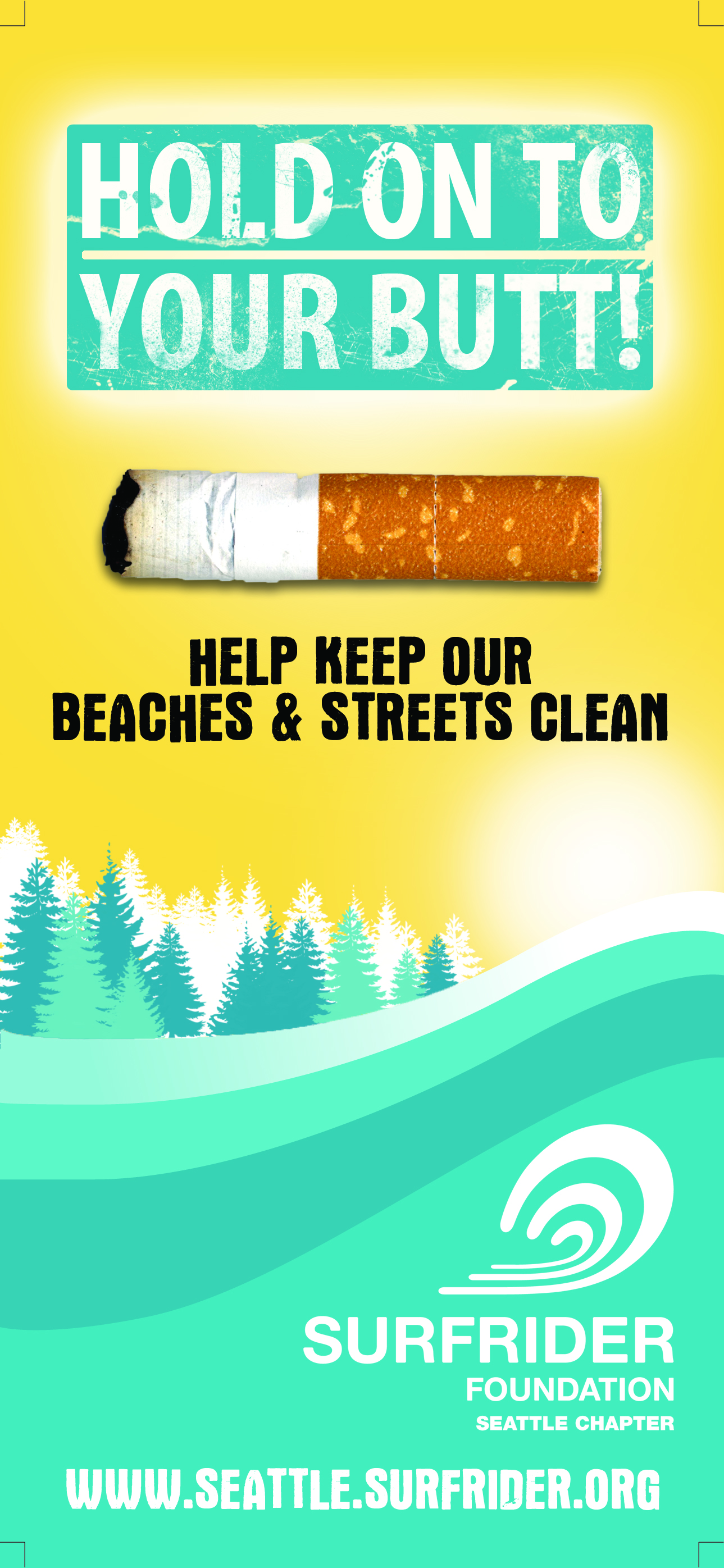
On Monday, December 7th, Seattle Surfrider's summer interns Nick Schippers and Kiley Sullivan will present their capstone research projects for UW's Program on the Environment. Nick will present at 3:55PM and Kiley at 4:05PM in the Fisheries Auditorium (Room 102). The capstone projects are a collaboration between UW students, faculty, and a local organization. The event is free and open to the public; the full schedule and driving directions are here. Hope to see you there!
Did Seattle's smoking ban in parks reduce cigarette litter? By Kiley Sullivan:
Seattle parks enacted a smoking ban on July 6th, 2015, yet cigarette litter in parks still persists. The aim of this study was to measure the amount of cigarette litter deposited in parks and beaches and the relationship to the proximity of proper receptacles. The Surfrider Foundation’s Hold On To Your Butt (HOTYB) program is committed to helping to alleviate this driver of litter that ultimately ends up in local waterways. The study involved quantifying cigarette butt litter and measuring the distance of the litter from the nearest trash receptacle. Results indicate that distance to proper trash receptacles positively correlates to litter percentages, with litter increasing with distance to receptacles. Additionally, urban parks experienced higher litter percentages than beach parks. Consistent with similar studies, litter and proper trash receptacles appear to be closely linked, despite a relatively small data set. Additional studies might benefit from examining effectiveness of no-smoking signage compared to parks without signage.
What do Seattle beach users know about cigarette litter? By Nick Schippers:
My goal for this internship was to come away with a better understanding of what solutions there are to cigarette litter in particular. As Seattle recently enacted a smoking ban in city parks, it is necessary to understand park user's perceptions of litter and preferences for litter disposal. To find solutions to this problem I collected 100 surveys on perceptions of cigarette litter of beachgoers at Alki and Golden Gardens Beaches. The results that came from this work are largely in favor of promoting greater education and availability of receptacles for smokers. Surfrider’s Hold On To Your Butts campaign specifically targets the education and receptacle side of this issue, while simultaneously backing anti smoking initiatives at the state and federal level. Ultimately policy change seems to be the most effective way to mitigate the litter by limiting the number of smokers and consequently the number of butts. In conclusion cigarette litter is one of few forms of socially acceptable litter and it is something that needs to be addressed, my research expanded on this idea specific to the Seattle location.
-Barbara Clabots